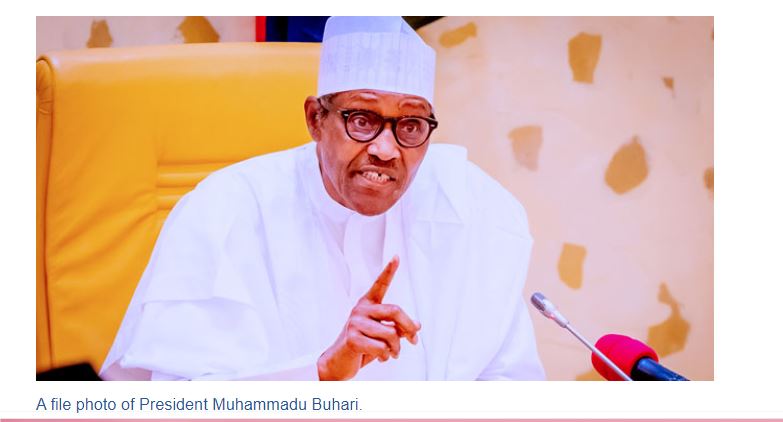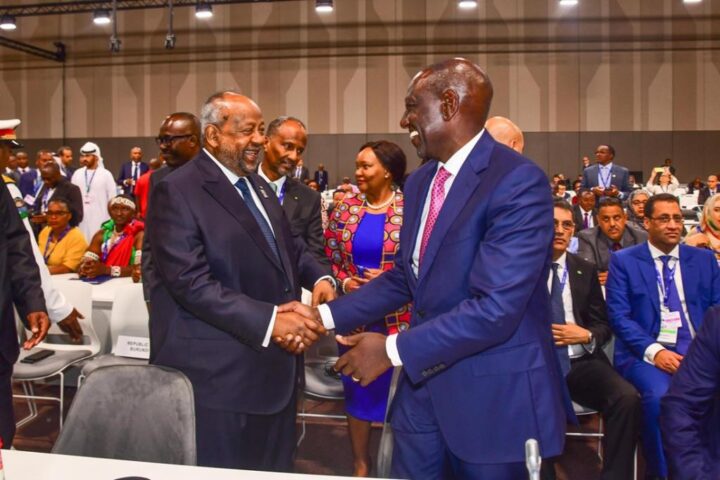Challenged by poor fiscal management and unproductive economy, the Nigerian federal government wants to rake in money from all available means, including local and foreign loans, Value Added Tax (VAT) increases, special taxes on alcohol and sugared beverages. Buhari’s Unclaimed Funds Trust Fund is also about appropriating unclaimed dividends and unutilized funds in dormant bank accounts belonging to private individuals, among others.
The Finance Act 2020 – the law empowering the Federal Government to establish Unclaimed Funds Trust Fund –was passed into law by the Senate in an unprecedented speed considering the usual dilly-dallying that go into lawmaking in Nigeria. The Freedom of Information (FOI) Bill (2011), PIB (2021) and the Electoral Amendment Bill (2022), despite their strategic importance, stayed quite long on the floor of the National Assembly before their eventual passage into law. Electoral Act amendment that was to set the tone for the all-important 2023 general elections, had not a few controversies even after it was sent to the President for assent and had to be reviewed at least twice in two months. Apart from the needless delays, such long periods of waiting could provide ample opportunity for citizens to dissect and understand the proposed law.
Join our WhatsApp ChannelThere are also concerns that the Fund is coming into life in an election year and just months to the end of an administration.
READ ALSO: Double Whammy In NDIC, AMCON Travesty For Banks
In the case of the Finance Act 2020, if the same ample latitude had been given, many of the questions and doubts expressed about the Trust Fund would have been unnecessary. The Unclaimed Funds Trust Fund, which is chaired by the Minister of Finance, unless challenged in court is already in force. The Senate has also on Wednesday, July 20, 2022 confirmed the appointment of Umar Yahaya as Co-Chairman of the Governing Council, after he was cleared by the Senate Committee on Banking, Insurance and other Financial Institutions.
The Trust Fund was created in line with Section 77 of the Finance Act 2020 captioned: Establishment of Unclaimed Funds Trust Fund. This is a sub-fund of the Crisis Intervention Fund intended to help the government in its quest to finance critical infrastructure and prosecute fight against insecurity. By implication, starting from the commencement of the Act (January 01, 2021), “any unclaimed dividend of a public limited liability company quoted on the Nigerian Stock Exchange and any unutilized amount in a dormant bank account maintained in or by a deposit money bank which has remained unclaimed or unutilized for a period of not less than six years from the date of declaring the dividends or domiciling the funds in a bank account shall be transferred immediately to the Unclaimed Trust Fund.” The funds in question exclude unclaimed dividends of private companies and official bank accounts owned or belonging to the Federal, State or Local Governments, or any of the Ministries, Departments or Agencies.
At no time in Nigeria’s post –independence history has the country ever experienced the kind of economic crunch that befell it in the past six years. Faced with two recessions, a double-digit inflation that’s at an all-time high, insecurity, shortfall in oil revenue, and poor management, the government have been upbeat on bailing out the economy, taking humongous loans in the process. It’s global practice to look inwards, when hit by financial crisis, for effective means of managing cost or generating revenue to enable governments to perform its functions. In such situations, it’s also, government’s responsibility to think of ways of helping tax payers cope with the harsh economic reality, not by burdening them further, but by minimizing waste and properly managing available resources. Unfortunately, successive administrations have failed in this task Nigeria have failed.
Nigerians are already over-taxed, with many already pauperized by the current economic situation. Evidently stretched, Nigerians, especially without proof of any tangible benefits from new tax regimes, should not be at the receiving end of another drastic financial policy.
The other day, Nigerian governors were reported to have advised Mr President to peg VAT at 20 percent, an over 150 percent increase on the existing 7.5 percent, after it was hiked by as much as 50 percent (from 5 percent to 7.5 percent) recently.
No doubt, the Unclaimed Funds Trust Fund will give the President Muhammadu Buhari-led government critical access to more funds. By estimates, nearly a trillion naira (N850 billion) will be injected into the Trust Fund. But we believe that, even in the face of inability to ascertain ownership, six-year benchmark is still not enough to declare a private bank deposit or dividend as ‘unclaimed.’
The expectation is that such unclaimed funds, if truly confirmed as unclaimed, should form a welfare package to alleviate poverty and sort out critical problems in the Education sector, including the perennial university teachers’ strike, among others.
Again, the unclaimed dividends and unutilized funds in dormant accounts owned by individuals and private businesses could be the lifeline a victim of the current economic crisis will hold unto. Unless the account owner is dead (without a successor), it is believed that people fall back on their reserve or where they kept money, in their moments of lack. It will not only be embarrassing for such a person, but also, a great injustice for he or she to learn that his/her fund has been remitted to government without permission nor prior warning. A debt or lease agreement by law should be transparent, unambiguously stated and acceded to by all the parties involved.
How transparent is the establishment and enforcement of the Trust Fund? The Finance Act 2020 provides that the funds remitted to the Trust Fund is viewed and treated as a special debt owed by the Federal Government which the owners can claim, together with the yield thereon at any time. We are worried that, how the yield (interest) will be estimated is not clearly stated in the law. Again, the term ‘anytime’ is hanging loose and subject to many interpretations. This media organization believes that such proviso can be disambiguated by providing a specific time frame within which the debtor (federal government in this case) is expected to refund the ‘loan’.
We also question the curious decision of the federal government to exempt all accounts and dividends belonging to all levels of government and their agencies from the policy. Whatever reason for this, certainly cannot be in the interest of the country, and, can heighten the suspicion of government’s insincerity in making this law.
It stands to reason that government would and should exhaust resources within its reach before seeking or forcefully taking funds from external and private sector sources. It is unthinkable that a government whose sole reason for being in existence is the welfare of citizens, would in desperate need of funds rather take from private individuals and businesses than appropriate its own funds idling away in dormant accounts or unclaimed shares it has in quoted companies in the Nigerian Stock Exchange (NSE).
Moreover, such unutilized government funds can be haven for official corruption, as officials who are aware of the money, could easily embezzle them once they succeed in diverting attention from them for a while.
We urge the executive and legislative arms of government to be more cautious in implementing Act and reconsider all knotty issues bordering on its structure and modus operandi. We advise government to provide adequate enlightenment on the controversial Unclaimed Funds Trust Fund and make provisions for voluntary investments in the Trust Fund.
Government should be far removed from private contracts between banks and their customers; the same for companies and their shareholders. The Judiciary should be the only visible hand of government in such deals.
















![Gender Activism An Economic Necessity In Africa [PBA Editorial]](https://www.primebusiness.africa/wp-content/uploads/2023/11/vaw-720x480.png)

Great!
This policy should be subjected to judicial review. The Trust fund is a complete rip off